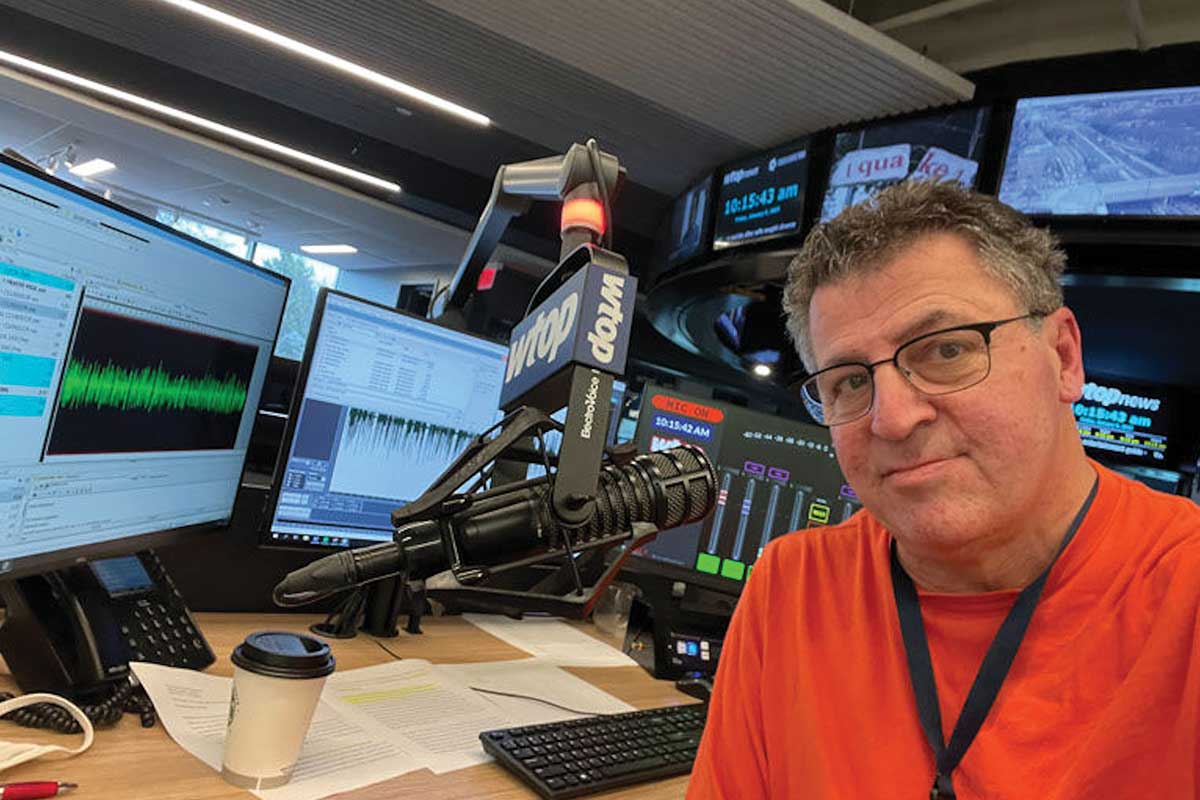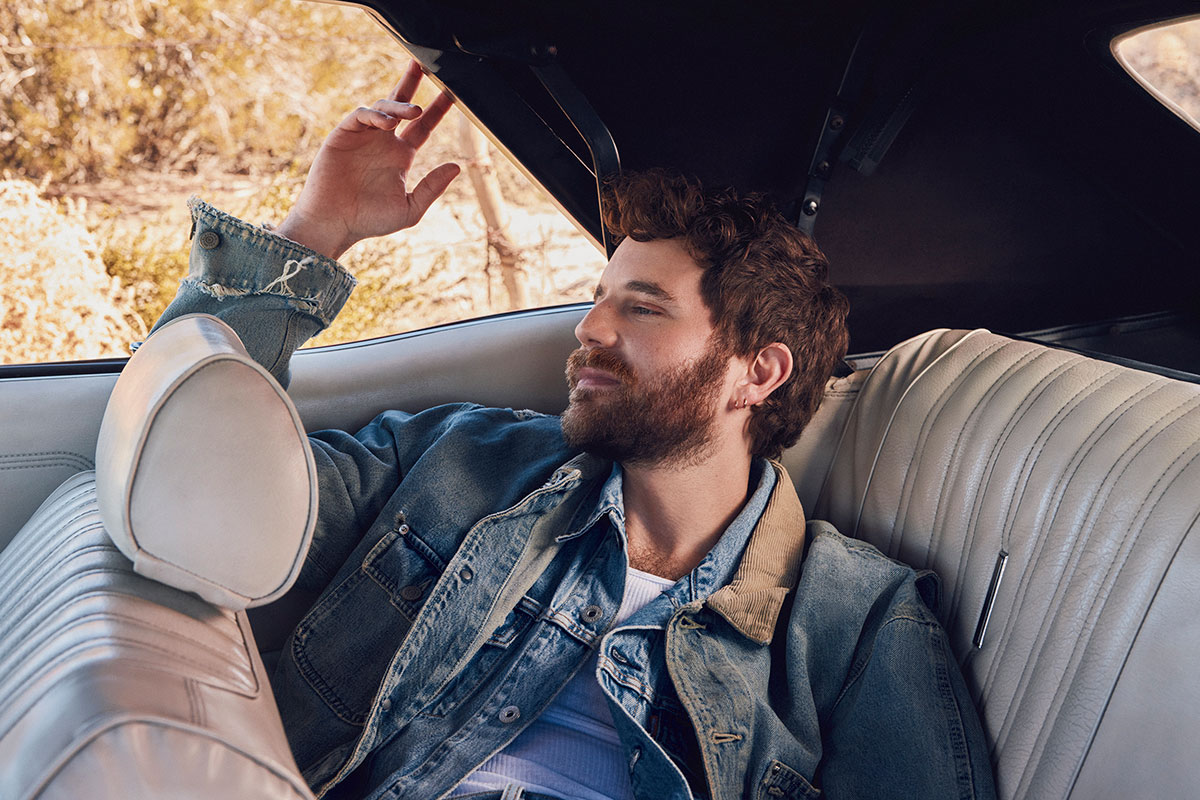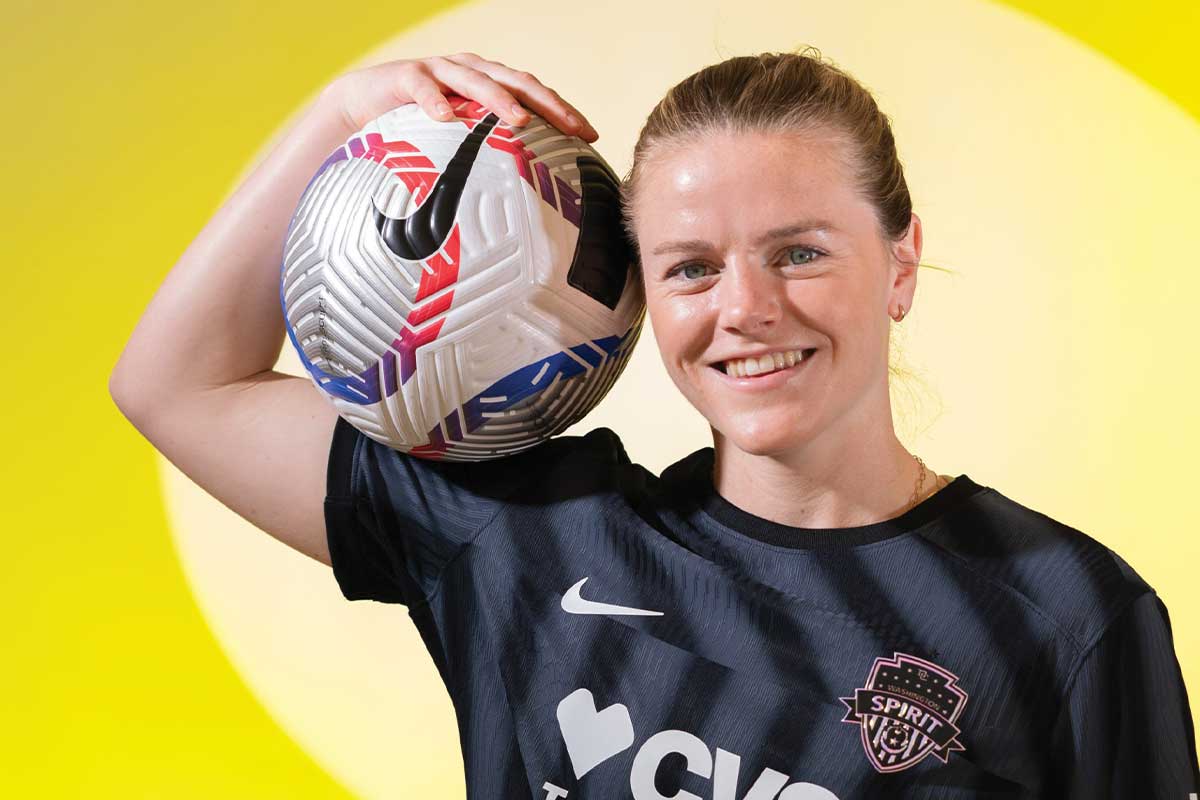After he was diagnosed with stage 4 lung cancer last November, Neal Augenstein, one of the most recognizable reporters you hear on WTOP Radio, knew the statistic: Lung cancer patients have a 1 in 4 chance of living another five years.
He says he dealt with the grim numbers by ignoring them — and pushing forward with tests and treatment that started in December. By April, a combination of good medicine and good luck left him with “no evidence of disease,” or NED. There’s no such thing as “cured” in cancer treatment, but NED is about as good as it gets.
“I’ve been very lucky,” Augenstein, 64, says. Soon after his diagnosis, he learned there was a targeted treatment for his particular mutation of cancer — the initial biopsy showed adenocarcinoma, while additional biomarker testing showed it had the epidermal growth factor receptor mutation — and that meant avoiding the usually miserable chemotherapy process. After a few months of treatment at the Inova Schar Cancer Institute, he was eligible for robot-assisted surgery, which didn’t seem possible last year.
“Almost all of my cancer was killed within three months,” he says, adding that, other than a persistent, dry cough that started in September, he never really felt very sick at any point.
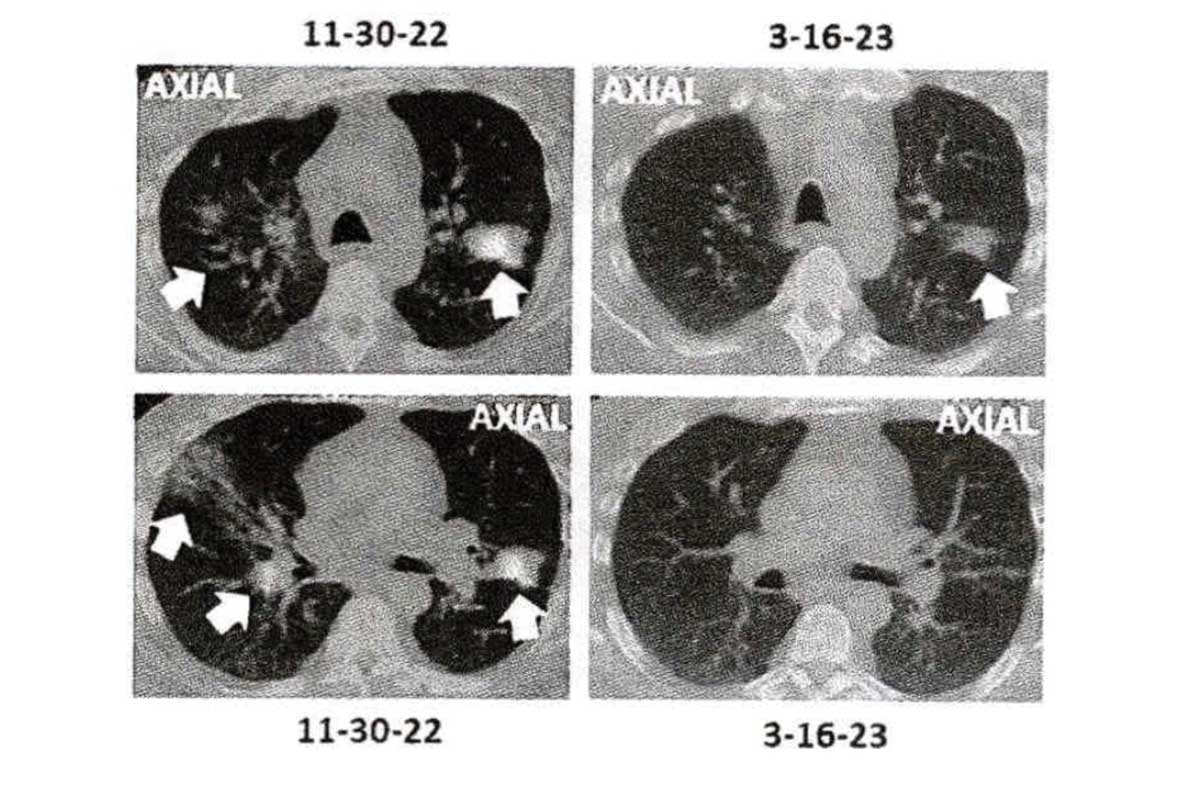
Dr. Melissa Yacur is a thoracic oncologist at Inova Schar. She is not on Augenstein’s treatment team but calls his trajectory “amazing.” Doctors generally hope targeted therapy will keep cancer from getting worse; the response Augenstein had was found in less than 5 percent of patients in the latest trial, Yacur says.
Osimertinib, which is sold under the brand name Tagrisso, is the specific drug Augenstein has been taking since December. Only a “minority of patients” who have a mutation will respond to it, Yacur says. “He’s a great case of why it’s very important to check” every possibility.
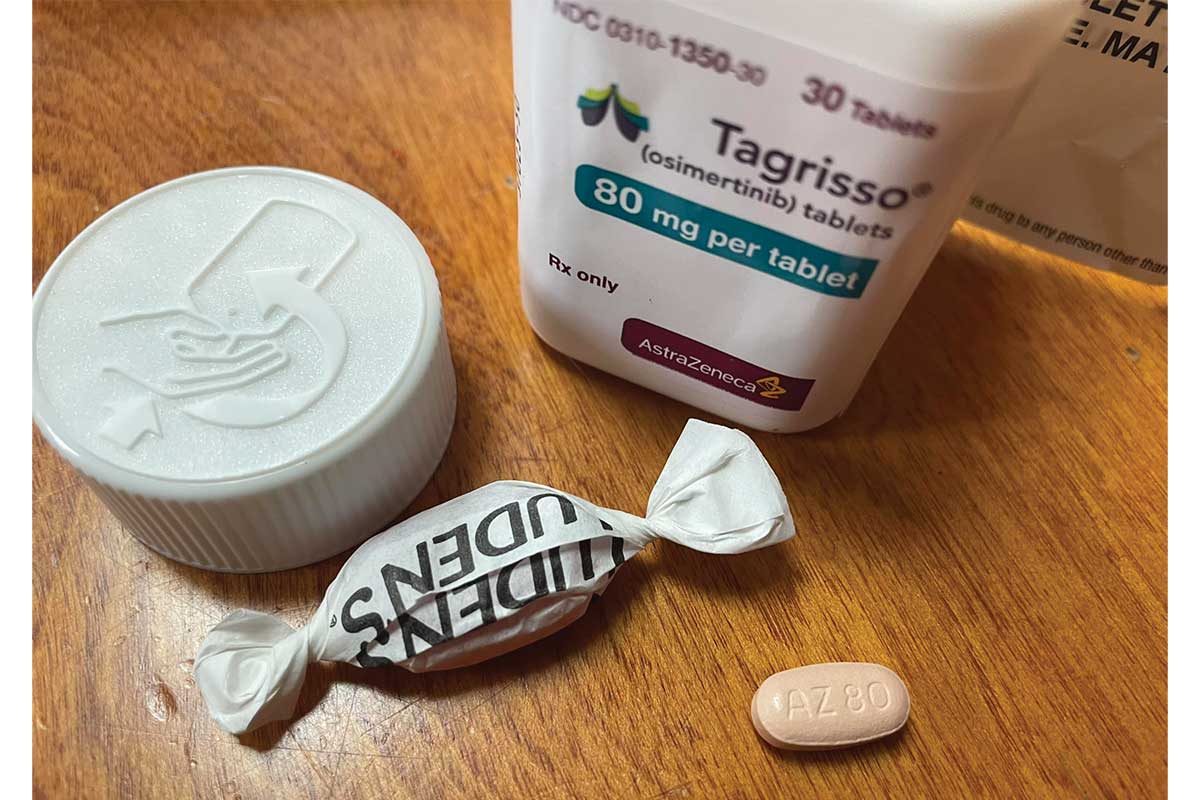
Through it all, Augenstein, a nonsmoker, has remained essentially himself.
“He’s never been a worst-case-scenario or a doom-and-gloom [person],” says his wife, Paula Augenstein.
They live with their two teenage children in Loudoun County, and she says telling them about the diagnosis was the scariest part. “We told them what they needed to know,” she says. “They knew it was bad, but they also knew there was a plan.”
Augenstein, who has been with WTOP since 1997, only took one day off work through the whole process, and his WTOP colleagues say he never changed his attitude.
“I remember saying to him, ‘Whatever you need, we are here for you,’” says Julia Ziegler, WTOP’s director of news and programming. “But at no point did he ever really need anything from us.”
Augenstein continues to educate himself on cancer. He’s documented his journey on social media, given talks, and joined cancer-patient communities. He says it all helps him cope with the possibility that conditions will change down the road.
“It’s clear that I have a … platform to describe [how] cancer treatment has worked really well for me, and I’m glad to share that message,” he says.
His day-to-day message to himself is, “You’re lucky to be living right now. Just soak it in and enjoy it. … I’m doing what I want to be doing with the people I love. And that’s great.”
Feature image courtesy WTOP and Neal Augenstein
This story originally ran in our August issue. For more stories like this, subscribe to Northern Virginia Magazine.

